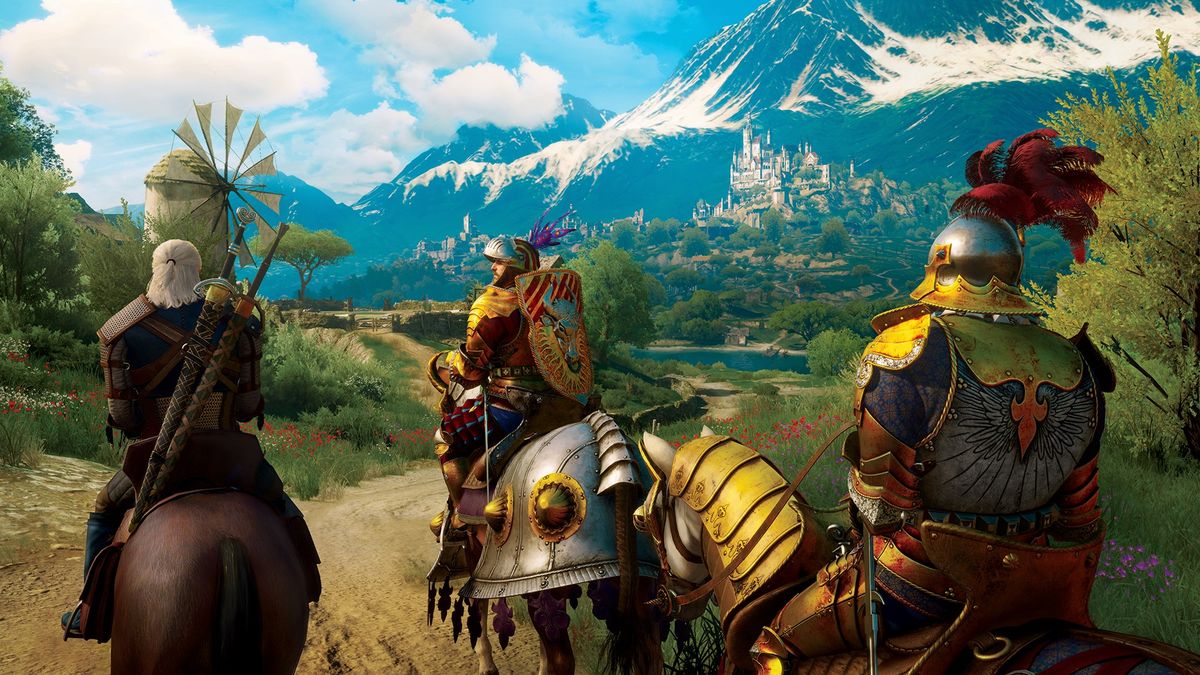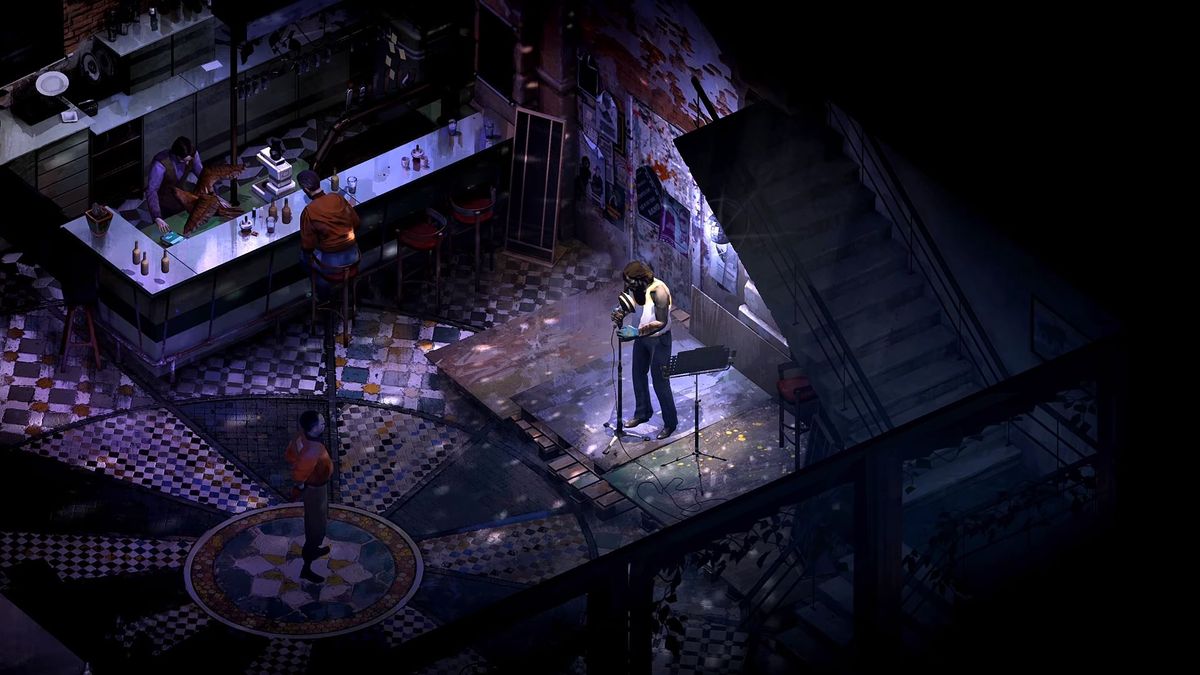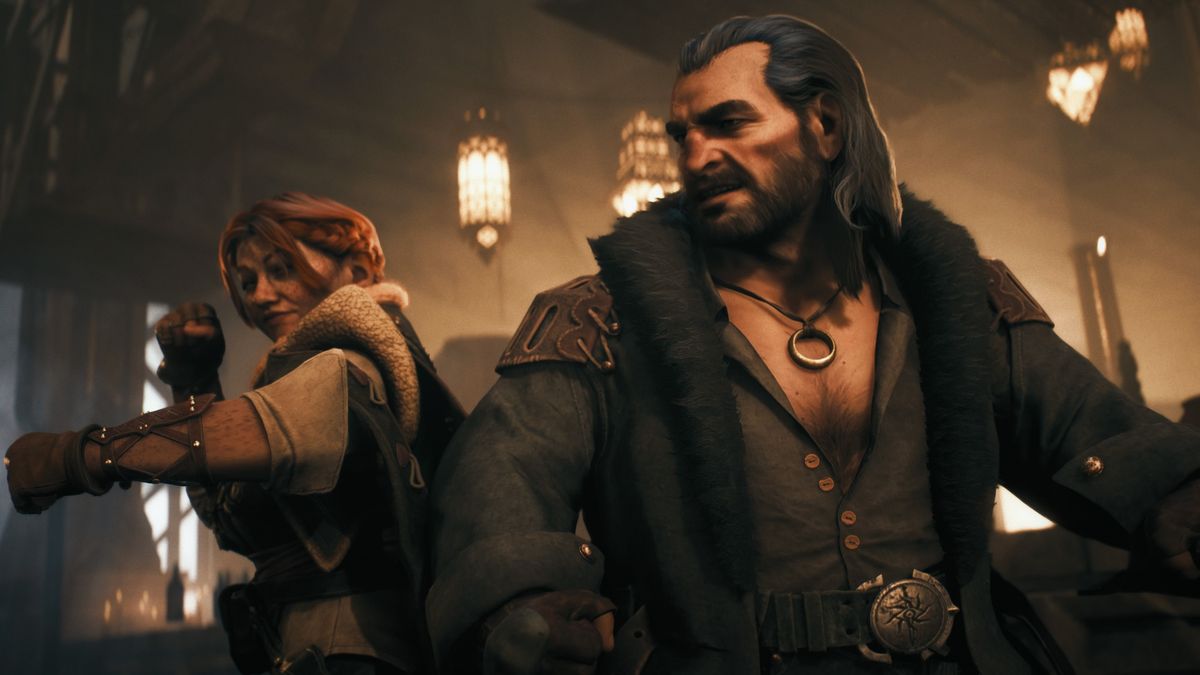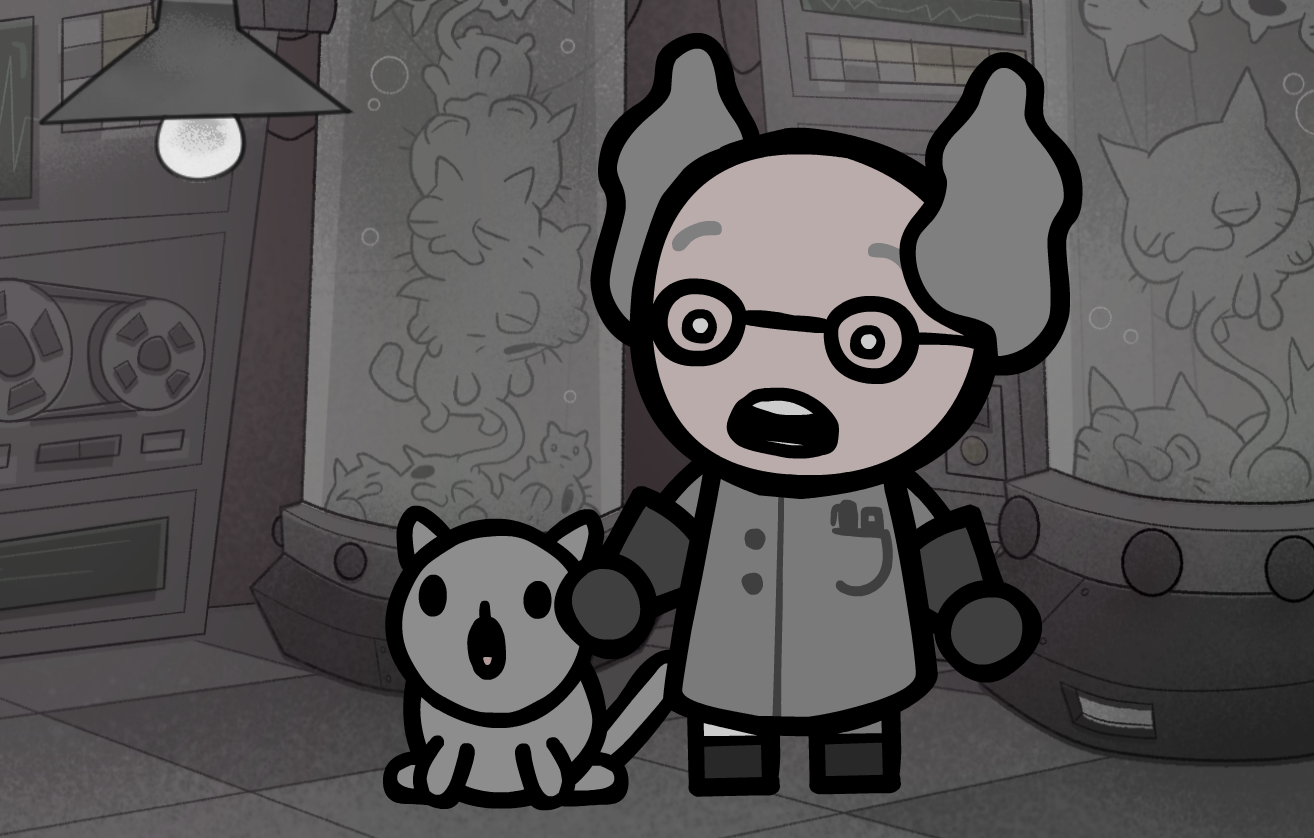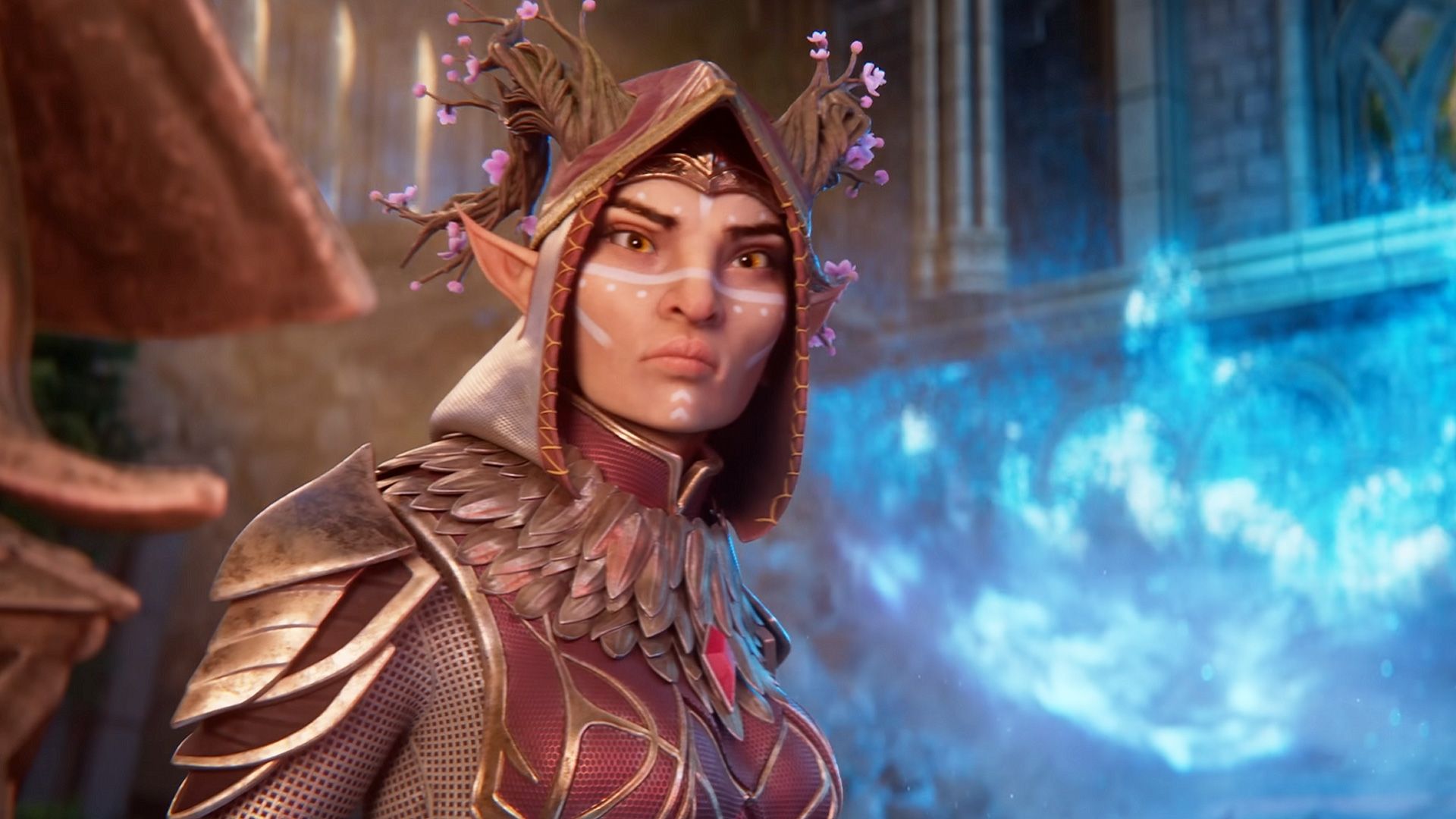Videogames are the weirdest of mediums. For lots of reasons, really, but this weekend it’s DLC and expansions that I’ve got in my sights. An opinion piece about DLC, how novel! I know, I know, but lately there have been a few high profile games refusing to go down the DLC and expansion route, and this novelty really reinforces how strange it is that games drawing out their stories for a year or longer has become the expected, done thing.
Anyway! The concept of new storylines and even epilogues being slapped onto our adventures months or years after release is not just normal, it’s a long-running tradition that’s outright expected—especially in RPGs. Over the years, BioWare alone has released 40 DLCs and expansions—and that’s only counting ones that include meaningful story additions, so not shops like Dragon Age’s Black Emporium or packs that just include weapons or skins.
It would seem bonkers almost anywhere else—aside from tabletop games, anyway. If we watched a re-release of Return of the Jedi where it wasn’t just CGI tinkering but an hour-long post-credits scene where Luke flits off to Space France to open up a vineyard, we’d all leave the cinema thinking “Well, that was pretty odd”. Because it really would be pretty odd.
But Geralt hanging out in Toussaint and becoming a grape daddy in The Witcher 3 was not only par for the course, it was a crucial conclusion to what’s considered one of the best videogame stories of all time. You have not properly experienced this essential RPG unless you’ve played Blood and Wine.
So yeah, a bit weird. But equally, one could argue, great. DLC and expansions give developers an opportunity to build on lessons learned from the base game, redirect the spotlight to add new perspectives, or just spin killer yarns that couldn’t originally be included. In some cases, like Cyberpunk 2077’s Phantom Liberty expansion, they can even be redemptive, giving a troubled game a second shot.
But they also mean you never really know when a game is finished, or when the ideal time to jump in might be. Rarely is it the initial launch. I am deeply tired of finishing an RPG, then revisiting it a year later, reloading my pre-point-of-no-return save, and then hopping off on some side adventure, before returning to the climax. It’s not the way it’s designed to be played, but aside from starting all over again there isn’t another option for those without the—frankly superhuman—willpower to resist buying a game before the dev has officially moved on.
This expectation of post-launch additions means that there’s always something gnawing at me when I’m playing a new RPG.
This expectation of post-launch additions means that there’s always something gnawing at me when I’m playing a new RPG—the terrible knowledge that even after maybe 100 hours, I won’t really finish the game, and I might have to wait a year or more to get the true conclusion. And in RPGs it feels so much more egregious. These are the games where I’m most likely to be properly invested in the structure of a story—games where it feels wrong, somehow, to go back to just so I can go off on some tangent or experience a second ending, undermining the original.
Lately, though, we’ve seen some pretty major RPGs eschew this tradition. Baldur’s Gate 3 was a prime candidate for an expansion—despite a pretty conclusive ending. We loved these characters, we were obsessed with the game, why wouldn’t Larian milk it for a bit longer? But while it’s given BG3 an incredible amount of support since it launched more than a year ago, the studio decided it had done everything it wanted to do and moved on. And this was after it had previously decided to create an expansion, which then turned into a prototype for Baldur’s Gate 4. But Larian wanted to do something new.
“We should be looking at how we can do stuff that we get excited about,” CEO Swen Vincke told me when we were chatting about how Larian nearly made Baldur’s Gate 4. And that meant leaving Baldur’s Gate behind. So, hurray, we don’t need to wait around for the complete edition. It was already there all along. Larian did, it should be noted, add quite a bit to the game across a multitude of updates—but I’d still argue that the full experience was available on day one. At most, the additions augmented what was already there.
We should be looking at how we can do stuff that we get excited about
Swen Vincke, Larian CEO
This really shows the power of this expectation. Larian explicitly said expansions weren’t part of the plan, and it’s an independent developer not beholden to the whims of a publisher. But the massive success of Baldur’s Gate 3 almost put the studio on autopilot, quickly getting to work on more Baldur’s Gate adventures to feed its hungry audience.
Often, you see this narrative of greedy publishers exploiting players with DLC—it’s particularly prevalent in the Steam reviews of games from publishers like Paradox interactive, which supports its strategy games with years and years of DLC—but there’s a massive ecosystem supporting the relentless tide of post-launch diversions, and players are at the heart of it. Of course we are—why wouldn’t we want more of the thing we like? But it’s not always in our best interest, or the game’s.
Before BG3, Disco Elysium took a similar approach. ZAUM’s post-launch support gave us a lot more voice acting and some further additions in the form of political vision quests that forced you to wrestle with your worldview, but they didn’t have the FOMO-inducing quality of an expansion. Nor were these updates the kind of things that would inspire you to awkwardly fire up an old pre-finale save so you could slot in a random sidequest before calling it quits. And they didn’t reframe or outright add a new conclusion or epilogue. For those who had already finished, they simply provided an excuse to play through it again. Meanwhile, for those without the time or inclination, you still got a finished game.
Crucially, when Larian and ZAUM added things, they didn’t stick a price on them. All of the updates were free. In a lot of other cases, you are paying to properly finish the game. And in a series—Dragon Age, for instance—the DLC might even have ramifications that go beyond the game you’ve just played, echoing across future games. Dragon Age: Inquisition is almost entirely set up in Dragon Age 2 DLC that I don’t ever remember actually playing. Not that playing the DLC would have made me give a toss about Corypheus, a pantomime villain whose primary motivation is just that he’s a dickhead power-monger.
It’s especially surprising, then, to see BioWare curb its habit and give us the entirety of Dragon Age: The Veilguard in one go. It did this with Andromeda too, to be fair, but in that case it did seem like it was going to get DLC, before the chilly reception. With The Veilguard, it seems like a one-and-done deal was part of the plan. I honestly don’t think I’d be up for more of The Veilguard anyway, but even if I was more of a fan of the game’s direction, knowing I’d seen it all would, I think, be reassuring.
I wouldn’t want to give up The Witcher 3: Blood & Wine, Cyberpunk 2077: Phantom Liberty, Dragon Age: Origins – Awakening, or all the other top tier expansions, but DLC of this quality is the exception rather than the rule, and that should be the same for the DLC model: not the expected thing, but a tool only sometimes deployed in those instances when a developer really has a corker of a story that can’t just wait for a sequel. A rare treat.
I’m not convinced The Veilguard is going to be particularly influential, but BG3 and Disco Elysium undeniably are, and I hope their ability to tell their stories without a flurry of extra bits and bobs dripping into a sink already overflowing with yarns sets a new standard. We’ve already got enough games tugging at our sleeves and pleading with us to return every season thanks to the glut of live service games, and sometimes it’s just nice to finish something.


